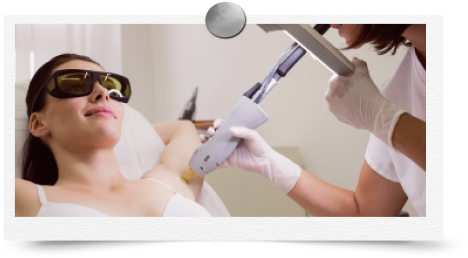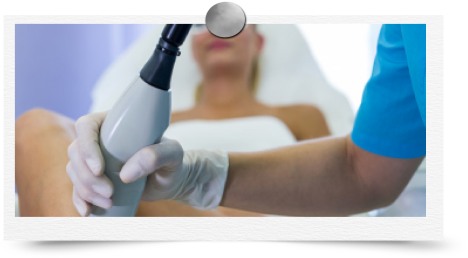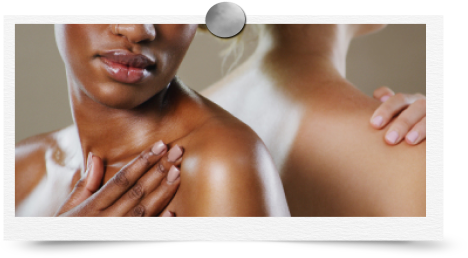When most people think of laser hair removal, they envision smooth, hair-free skin on areas like the legs, underarms, and bikini line. However, did you know that laser hair removal can also be a helpful treatment for acne? While acne is most commonly associated with facial treatments, more people are discovering the surprising benefits that laser hair removal can offer when it comes to treating acne-prone skin.
In this blog, we will explore how laser hair removal can help alleviate acne, how the process works, and why it’s becoming a go-to solution for many people struggling with breakouts.
Understanding Acne and Its Causes
Acne is a common skin condition that primarily affects the face, chest, back, and shoulders. It occurs when hair follicles become clogged with oil, dead skin cells, and bacteria, leading to inflammation, pimples, blackheads, whiteheads, cysts, or pustules. Several factors contribute to the development of acne, including:
- Excess oil production from the sebaceous glands
- Clogged pores from dead skin cells
- Bacterial growth within clogged pores
- Hormonal fluctuations, especially during puberty, menstruation, or stress
- Genetic predisposition to acne
While topical treatments like benzoyl peroxide, salicylic acid, or retinoids are commonly used to treat acne, these methods don’t always address the root causes of acne or work for every individual. Some people have persistent breakouts, even after trying multiple skincare routines. This is where laser treatments, including laser hair removal, come into play.
How Laser Hair Removal Can Help with Acne
Laser hair removal primarily targets hair follicles by using concentrated light energy to disable the follicle’s ability to grow hair. However, the laser light also has additional benefits that extend beyond just hair removal. Specifically, certain lasers can target the sebaceous glands, which are responsible for producing the oil that can clog pores and contribute to acne. Here’s how it works:
1. Reducing Oil Production
Laser hair removal can reduce the production of oil in the skin by targeting the sebaceous glands. These glands are located near the hair follicles and are responsible for secreting sebum (oil) that lubricates the skin. When laser energy is absorbed by the hair follicle and surrounding tissue, it can help regulate the overproduction of sebum, which in turn helps prevent clogged pores and reduces the likelihood of breakouts.
2. Reducing Inflammation
Acne is often accompanied by inflammation, which leads to redness, swelling, and irritation. Laser treatments, particularly those that use Fractional CO2 lasers or Nd:YAG lasers, can reduce inflammation in the skin. By stimulating the production of collagen and promoting skin healing, these lasers can help calm the skin and reduce the severity of acne breakouts. Additionally, the laser’s ability to target bacteria can help prevent future flare-ups.
3. Killing Acne-Causing Bacteria
Certain lasers, like the Nd:YAG laser, are also effective in targeting and killing acne-causing bacteria. By using a special wavelength of light, the laser can reach the deeper layers of the skin where bacteria often thrive. This helps to reduce the bacterial load in acne-prone areas, which can reduce the frequency and severity of breakouts.
4. Reducing Scarring
Acne can lead to the development of scars that linger long after the breakout has subsided. Laser hair removal, in particular, can help promote skin healing and collagen production, reducing the appearance of scars. For individuals with both acne and unwanted facial hair, laser hair removal can help improve the overall texture and appearance of their skin, making it smoother and clearer over time.
Why Choose Laser Hair Removal for Acne Treatment?
While laser hair removal is not a primary treatment for acne, it offers several unique benefits when used in conjunction with other acne therapies. Here’s why some people find laser hair removal to be a game-changer for acne:
1. Long-Lasting Results
Unlike topical treatments or medications that need to be used regularly, laser hair removal offers long-lasting or even permanent results. Once hair growth is reduced or eliminated, the sebaceous glands in the treated area are also less likely to produce excessive oil. This results in fewer breakouts over time.
2. Quick and Effective
Laser hair removal is a relatively quick and non-invasive procedure. It typically only takes a few sessions to see noticeable improvement, especially when combined with other acne treatments like topical antibiotics or oral medications. The treatments are generally well-tolerated, with minimal downtime required.
3. Reduces Ingrown Hairs
For individuals who experience acne-like breakouts due to ingrown hairs, especially in areas like the bikini line or underarms, laser hair removal can be a great solution. By permanently reducing hair growth, the risk of ingrown hairs is significantly lowered, reducing the associated acne and irritation.
4. Customizable Treatment
Laser hair removal can be customized to suit your skin type, the severity of your acne, and the specific areas where you need treatment. With different laser options available, a skincare professional can choose the best one to address both hair removal and acne treatment. Whether it’s treating acne on the face, back, or other areas, the versatility of laser hair removal can help target specific concerns.
What to Expect During a Laser Hair Removal Session for Acne
If you’re considering laser hair removal as a treatment option for acne, here’s what you can expect during your appointment:
Consultation
Before your first session, you’ll have a consultation with a trained professional who will assess your skin, discuss your acne concerns, and determine if laser hair removal is a good option for you. They will evaluate your skin type, acne severity, and whether other acne treatments should be used in combination with laser hair removal.
Preparation
Before the treatment begins, the area to be treated will be cleaned thoroughly. If you’re receiving treatment for acne, the technician will likely use a numbing cream to minimize discomfort. Depending on the area being treated, you may be asked to remove any makeup or skin products.
During the Session
During the treatment, the laser device will be moved across the skin. You may feel a mild sensation that’s often described as a rubber band snap against the skin. While the process is generally well-tolerated, the discomfort level varies from person to person.
Aftercare
After the treatment, your skin may appear red and slightly swollen, similar to a mild sunburn. This is normal and typically subsides within a few hours to a day. You’ll be advised to avoid sun exposure, hot showers, and vigorous activity for a short period following the treatment to ensure optimal results.
Laser Hair Removal vs. Other Acne Treatments
Laser hair removal should not be seen as a replacement for traditional acne treatments, such as topical medications, oral antibiotics, or retinoids. It works best when used in combination with other acne management strategies. However, it can be a highly effective addition to your acne treatment plan, especially for individuals with hormonal acne or those who also struggle with unwanted facial hair or ingrown hairs.
Topical Treatments like benzoyl peroxide, salicylic acid, or retinoids are still essential for managing acne. These can help target the surface-level issues of acne, like clogged pores, while laser hair removal addresses deeper skin concerns like oil production and bacteria.
Final Thoughts
Laser hair removal isn’t just for those seeking smooth, hair-free skin—it also offers promising benefits for individuals struggling with acne. By reducing oil production, killing acne-causing bacteria, and promoting healing, laser hair removal can help clear the skin and improve its overall texture.
While it may not be a cure-all for acne, it can be an effective part of a comprehensive skincare regimen. If you’re dealing with acne and are interested in laser hair removal, it’s essential to consult with a professional to determine if it’s right for you. Together with other acne treatments, laser hair removal can help you achieve clearer, healthier skin—making it a win-win for anyone looking for a smoother, acne-free complexion.







